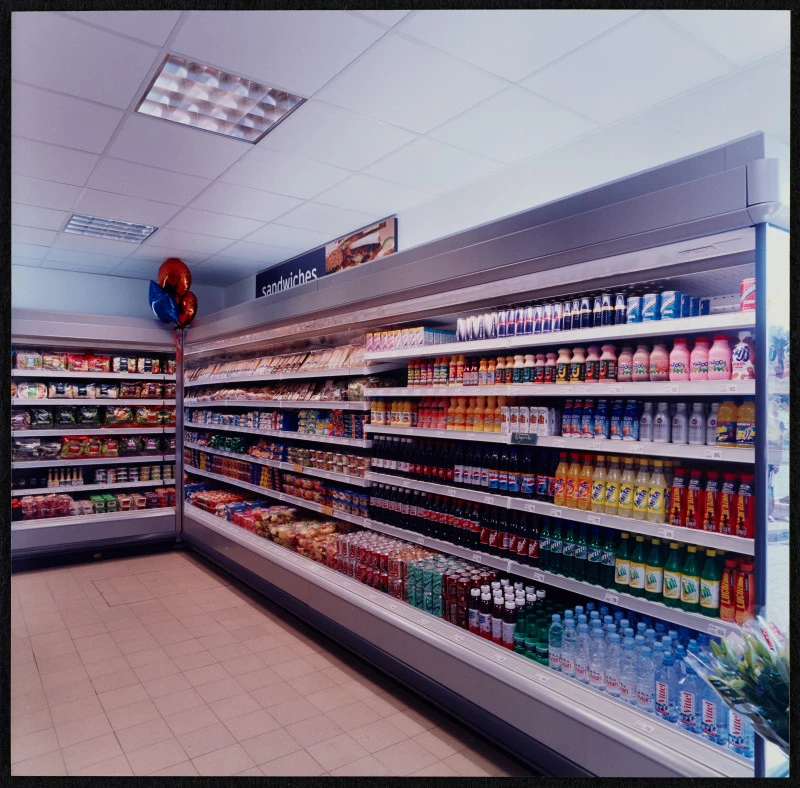The meal deal is a British staple. For just £3.00 (in most supermarkets) you can get a sandwich, a snack, and a drink. If you’re smart you can get almost five pounds worth of individual food with this. That’s a huge saving!
How on earth do supermarkets manage this? Britain has long had some of the cheapest food in the world 1 but even by those standards the meal deal is shocking, as well as the range of options: from the humble egg and cress to the exotic katsu curry, they’re only knocked down a peg by the ubiquitous soggy bread. At the time of publishing, there are 239 different options at Tesco, and over 300 at Sainsburys.
What could be keeping prices so low? Is it:
- Meal deals are a loss leader.
- The UK has cultural expectations of meal deal costs.
- Food and logistics really are that cheap.

What we know
Meal deals are unbelievably cheap, surely supermarkets must be losing money on them? Judith, the Senior Archivist at Boots 2 writes
Boots has generally provided a more expensive meal deal with higher costs, varying from £3.39 to £3.99 if you’re in London. But if the price of the meal deal increased in line with the inflation for food in general we would expect the Boots meal deal to cost £4.30 today 3, rather than £3.39. While price has remained low, the range of options has exploded - from a few sandwiches, a pack of crisps, and a coke in Boots in 1999 to hundreds now.The Boots meal deal was introduced as a trial offer on 6th October 1999 in 16 stores […] The Meal Deal was offered at a fixed price of £2.50.
Judith writes that the consumer could save up to £1.49 on their meal deal depending on which sandwich they chose. Similarly today you can expect to make a 20-30% cost saving on your items if they form a meal deal. Have profit margins remained the same? It beggars belief, given the increase in variety of options, and the number of stores which stock a meal deal, but without hard cost figures, this could reflect technological progress, and improvements in logistics.
While several articles online suggest that the meal deal originated at Boots, Boots claims that the concept was already being used elsewhere. Sainsburys also has an archive and George, an archivist there pointed out that the archives do not not show a definitive meal deal in their sandwich displays before 2001, although Sainsburys has offered pre-packaged sandwiches since 1983 4. However there is one clear sign of a cut in price: older photos from the archives generally show three half-sandwiches in a packet, rather than two.
Unfortunately this is where the pleasant correspondence with friendly archivists ends. I was ignored by other leading brands, who knows what they’re hiding.
Pure speculation
A walk round most small shops suggests meal deals are a loss leader: meal deals are inconveniently placed to force you to walk to the back of the shop, but without further information on the margin made specifically on meal deals we can’t determine how much of a loss is made.
But meal deals are a unique product that don’t play by the rules. Supermarkets can set almost arbitrary sandwich prices, because these sandwiches are rarely bought outside of a meal deal. In fact, supermarkets may artificially inflate the price of a sandwich to increase its supposed value in a meal deal! On top of that, meal deals are logistically complex in that they must be consumed on the day of production, but aren’t made in store like baked goods, and supermarkets have to fulfil a certain variety and abundance. Are meal deals in an economics class of their own? 5
This makes me hesitant to extrapolate from data on supermarket margins or general costs per item. On top of this all meal deals really are a cultural good. People joke that the British never stop talking about the weather, but God have they heard of the conversations we have about getting the best value out of a meal deal? I’m not sure that public opinion would allow for a significant hike in meal deal prices unless it was strongly justified and raised in a coordinated manner. Retailers would get raked across the coals in the tabloids for any change in meal deal variety or cost. The public really does care about this a lot, and anecdotally you often talk about a supermarket brand by the quality of its meal deal options, it’s what gets you excited. Recently, Sainsburys increased the price of its meal deal to £3.50, but only with a matching huge increase of range and perceived quality of its available meal deal options.
So meal deals probably lose supermarkets a lot of money, but are worth more as a brand identity. Will we see more supermarkets crack and increase prices like Sainsburys soon? I’m confident there are several more technological leaps that supermarkets can take to decrease the real cost of meal deals, like Ocado packing food in robot warehouses. But inflation is inexorable and I predict Tesco will be forced to increase the price of their meal deal by at least one pound in the next five years. Whether or not this will occur in line with a massive advertising campaign will show us whether meal deals are truly part of British culture.
Wrapping up
I’ve always thought the meal deal was pretty nifty, and I’ve been shocked by the dearth of information about them. In fact, I never quite appreciated meal deals until two Canadian friends visited me in London and couldn’t stop raving about what three pounds could get you in a Tesco. I was hoping to answer some basic questions I’m sure nearly every Brit has had on a lunch break, but I finish having eaten many more meal deals, but with just as many questions.
